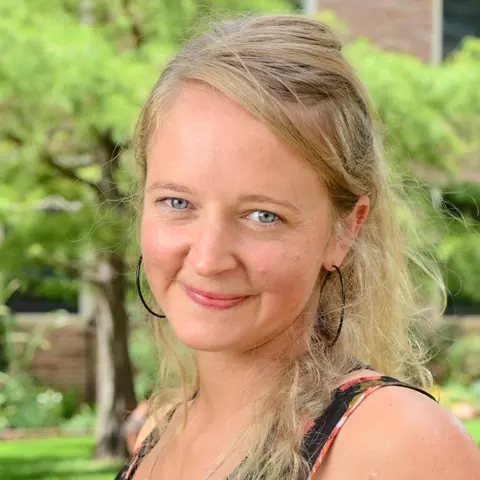Julia Daniel

Julia Daniel (she/her) comes to anti-racist organizing seeing it as key to our collective liberation and the right thing to do. Most of her organizing experience is with young people fighting the schoolhouse to jailhouse pipeline and for reproductive and housing justice in Miami. She helped found the Boulder, CO SURJ chapter. She also researches community organizing for racial equity in education and lives in the Bronx, NY. Julia identifies as upper working/lower middle class and believes that middle class people have an interest in ending white supremacy that is becoming increasingly clear.
Presentations from Facing Race 2022
How do we organize millions of white people into social justice movements? Divide and conquer strategies by those at the top have used race to divide people and maintain power, and the result is disastrous for all of us – including white people. Racial capitalism and authoritarian movements are threats to us all. Panelist will dive into Showing Up for Racial Justice's (SURJ) model for organizing, an approach needed to fundamentally change the cultural and political landscape in the US, but which goes against much of the current thinking about organizing white people.
SURJ formed to answer the call of Black leaders to “organize our own.” We organize majority white communities, guided by a “shared interest” approach. White people must understand that their personal interest is tied to the demands raised by BIPOC-led movements. Simultaneously, we must center those most impacted by white supremacy with a framework that incorporates both race and class. Panelists will share organizing stories from white rural, Southern, poor and working class, suburban, disabled and middle-class communities. This approach represents a departure from earlier approaches to anti-racist work with white people. It moves beyond guilt as the primary framework. We center the most marginalized people in our organizing, while understanding that middle-class people have an interest in ending white supremacy as well. With the model of shared interest, we can shift narratives about whose interests are served by the maintenance of white supremacy and create opportunities for multiracial movement building.